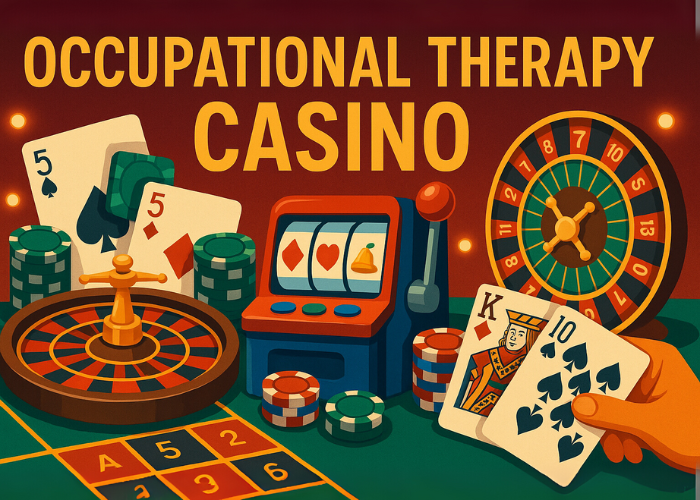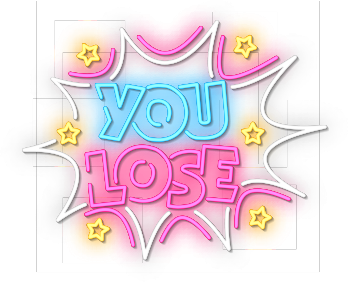Blog Detail
- Home
- Blog Detail
Occupational Therapy Casino: An Innovative Approach to Rehabilitation and Engagement

Introduction
Occupational therapy (OT) is a healthcare discipline focused on helping individuals regain independence and improve their quality of life after illness, injury, or disability. Traditionally, OT involves exercises, adaptive strategies, and practical skill-building. However, modern occupational therapists are increasingly exploring creative, gamified methods to motivate patients. One of the most innovative ideas is the Occupational Therapy Casino—a structured, therapeutic environment where casino-style games are adapted for rehabilitation, socialization, and cognitive growth.
Far from being about gambling, the OT casino uses the aesthetics and excitement of casino games to encourage participation in therapy. Games such as blackjack, roulette, poker, slot simulations, or bingo are redesigned with therapeutic goals in mind—fine motor practice, memory enhancement, decision-making, and stress management. This article explores the concept in depth, examining its theoretical foundations, potential applications, benefits, challenges, and future directions.
The Concept of Occupational Therapy Casino
1. What Is an OT Casino?
An Occupational Therapy Casino is a simulated casino environment used in rehabilitation centers, senior living facilities, and therapy clinics. Patients participate in game sessions where traditional casino activities are re-engineered to meet therapeutic objectives. Instead of focusing on financial gain, the emphasis is on functional recovery, cognitive engagement, and social interaction.
Examples:
-
Blackjack with adapted cards: Patients with limited dexterity practice shuffling oversized cards, improving grip strength.
-
Roulette for memory recall: The wheel is used to trigger number or color recognition exercises.
-
Slot machine simulations: Digital or mechanical devices encourage button pressing, timing control, and visual scanning.
2. Why a Casino Theme?
The casino environment is stimulating, colorful, and familiar to many adults. It provides:
-
Novelty: Therapy disguised as play increases motivation.
-
Socialization: Casino games naturally involve group dynamics.
-
Multi-sensory stimulation: Lights, sounds, and tactile elements engage multiple brain areas.
Historical Roots of Game-Based Therapy
Game-based therapy is not new. Occupational therapists have long used board games, puzzles, and card games for cognitive rehabilitation. The OT casino extends this tradition by combining the structure of therapy with the immersive experience of a themed environment.
-
1960s–1980s: Card and board games integrated into psychiatric rehabilitation.
-
1990s: Video game consoles like Nintendo Wii used for physical therapy.
-
2000s: Virtual reality applied in stroke rehabilitation.
-
2020s: Gamified approaches, including casino-style environments, emerging for senior care and neurological conditions.
Therapeutic Goals of the OT Casino
1. Physical Rehabilitation
Casino games can target fine and gross motor skills:
-
Shuffling cards = finger dexterity.
-
Rolling dice = wrist rotation and grip.
-
Reaching for chips = upper limb extension.
2. Cognitive Rehabilitation
-
Memory: Remembering bets, rules, and strategies.
-
Attention: Focusing on turn-taking and outcomes.
-
Problem-solving: Deciding when to “hit” or “stand” in blackjack.
3. Emotional and Social Benefits
-
Reduced isolation through group play.
-
Increased self-confidence when winning games.
-
Safe environment to handle risk and decision-making.
4. Life Skill Training
In some cases, the OT casino mimics real-life transactions:
-
Using tokens to practice budgeting.
-
Simulating money exchange to reinforce math skills.
Applications Across Populations
1. Geriatric Care
Older adults benefit from casino games that maintain cognitive sharpness and social interaction. Bingo and poker, for instance, are effective tools for dementia care programs.
2. Stroke Rehabilitation
Patients recovering from strokes often struggle with motor coordination. Manipulating chips or pressing buttons in slot simulations provides low-risk, repetitive practice.
3. Mental Health
Casino-style group therapy can enhance self-expression, reduce anxiety, and promote laughter—helping patients with depression or PTSD.
4. Pediatric OT
Although less common, adapted casino themes can be child-friendly. For example, simplified roulette with colors instead of numbers aids in learning color recognition and turn-taking.
5. Workplace Rehabilitation
For adults returning to work, OT casinos provide simulations of decision-making under pressure and teamwork, useful in vocational therapy.
Structure of an OT Casino Session
-
Warm-Up: Stretching exercises disguised as “dealer warm-ups.”
-
Game Rotation: Patients move through blackjack, roulette, and slot stations.
-
Therapeutic Debrief: Therapists discuss physical, cognitive, or emotional lessons from the session.
-
Rewards: Tokens earned can be exchanged for small prizes (not money), reinforcing motivation.
Case Studies and Examples
Example 1: Senior Living Facility in Florida
A retirement home implemented weekly OT casino nights. Residents reported higher satisfaction, improved hand strength, and better social bonding.
Example 2: Rehabilitation Center in Canada
Stroke patients participated in “Therapy Blackjack.” After 12 weeks, grip strength and task engagement scores increased significantly.
Example 3: Virtual OT Casino
During the COVID-19 pandemic, therapists used online platforms with digital slot and card games. Patients at home accessed therapy remotely, maintaining cognitive stimulation.
Benefits of Occupational Therapy Casinos
-
Engagement: Patients are more motivated compared to traditional therapy.
-
Versatility: Can be adapted for multiple conditions and abilities.
-
Low Cost: Requires minimal equipment (cards, chips, dice).
-
Scalable: Works in small clinics or large rehabilitation centers.
-
Cultural Relevance: Many adults already understand casino games.
Challenges and Ethical Considerations
-
Risk of Gambling Triggers
Patients with gambling addiction histories may find the environment problematic. Therapists must screen participants carefully. -
Stigma
Some families may misinterpret the casino theme as promoting gambling. Clear communication about therapeutic goals is essential. -
Accessibility
Not all patients can physically or cognitively participate; adaptations must be individualized. -
Evidence Gap
Although promising, more research is needed to prove long-term outcomes.
The Role of Technology
1. Virtual Reality Casinos
Immersive VR can simulate casino environments with precise control over therapeutic tasks. For example, VR blackjack can track hand motion.
2. Mobile Apps
Simple slot-style apps with therapeutic objectives allow patients to continue exercises at home.
3. AI Personalization
Artificial intelligence can adapt game difficulty in real-time based on patient performance.
Training for Therapists
To implement OT casinos successfully, therapists require:
-
Training in game-based therapy design.
-
Understanding of gambling addiction risks.
-
Cultural sensitivity in using casino themes.
Workshops and certifications may soon emerge as demand grows.
Future Directions
-
Integration with e-Health
Remote OT casinos delivered through teletherapy platforms. -
Cross-disciplinary Collaboration
Combining occupational therapy with psychology, physical therapy, and recreational therapy. -
Research Expansion
Longitudinal studies needed to measure outcomes across populations. -
Community Partnerships
Public libraries, community centers, or even regulated casinos may collaborate on therapeutic programs.
Conclusion
The Occupational Therapy Casino is more than just a novel concept—it represents a broader movement toward gamified, engaging rehabilitation. By harnessing the excitement of casino games in a safe, controlled environment, occupational therapists can address physical, cognitive, and emotional needs simultaneously.
From seniors battling memory decline to stroke patients regaining motor control, the OT casino provides a fun, stimulating pathway to recovery. While challenges remain, particularly regarding addiction risks and public perception, the future looks promising. With the integration of technology and further research, Occupational Therapy Casinos could become a mainstream tool in rehabilitation programs worldwide.
Ultimately, this approach demonstrates that therapy doesn’t need to feel clinical to be effective. Sometimes, the road to recovery can be paved with cards, dice, and a touch of casino magic.


